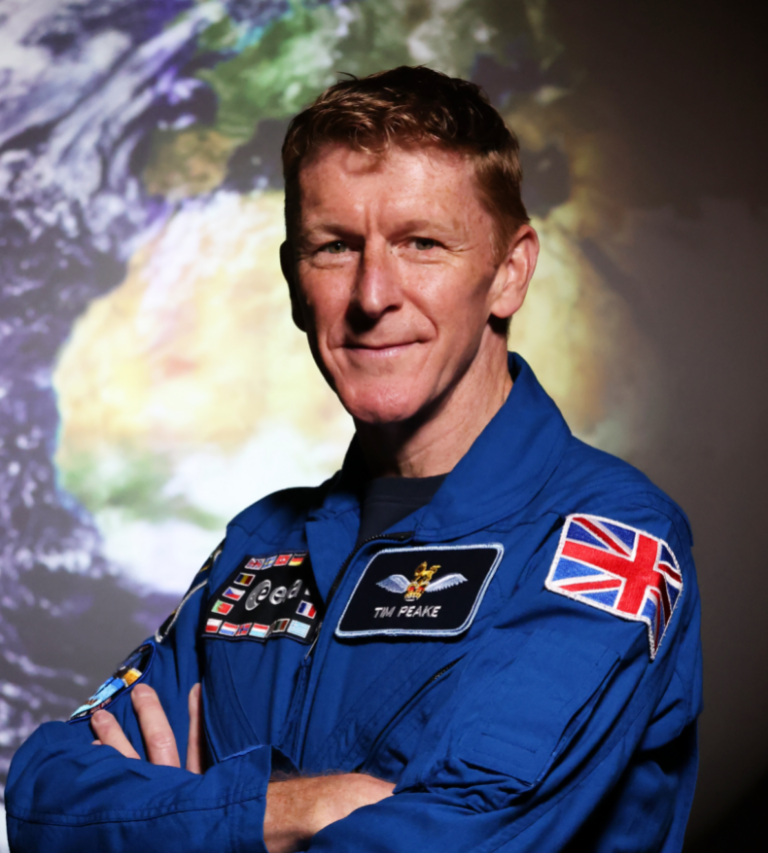Primary Times - the definitive what’s on and where to go family guide of activities and events for children of primary school age. Things to do with your kids during the school holidays including arts and craft activities, music and theatre for children, parties, competitions, days out, and family attractions along with term time drama schools, dance classes, after school clubs and sports activities. Things to do at a place near you!
Q and A with Tim Peake on his new book Swarm Enemy
 Swarm Enemy by Tim Peake and Steve Cole is out now and is available at all major bookshops
Swarm Enemy by Tim Peake and Steve Cole is out now and is available at all major bookshops
What do you think makes a great children’s book?
For me, children’s books are all about escapism and somewhere people can imagine and can be thought-provoking and enjoyable. Certainly within children’s books as well, that give that freedom and that limitless ability to wonder and to have curiosity and to think outside the box. When I speak to my young boys about the kind of stories they love to read and they loved me to read to them when they were younger, it was always those ones that sparked the greatest curiosity. I think that with children you can afford to really have a lot of fun.
How do you hope Swarm Enemy will inspire children?
I hope it’s inspirational in terms of getting people to think a bit more about the future. I'm a real optimist. I've had the opportunity to go and have a look around nuclear fusion experiments and see them in action, to actually run one myself and this is the potential future for limitless clean energy. Going down to Goonhilly in Cornwall seeing radio telescopes that are receiving information from the Mars rovers, and these areas that we’re working on with space station with vaccines, with medical research. I’m a huge believer that technology, engineering, science is going to provide us with the solutions that we desperately need for the challenges that we face. We've just got to work together. We've got to co-operate.
What were your feelings when you were preparing to go into space?
There are so many feelings! On the one hand there’s a huge amount of excitement and adrenaline. This is a culmination of years of work and effort so you’re really looking forward to it. There’s a little bit of apprehension as well, obviously you’ve got a rocket launch to go through, and then the eyes are on you. The eyes of the agency, the eyes of your crewmate, the eyes of the nation watching! There are times when you just have to step up to the plate and perform. Catching a visiting cargo vehicle is a one-person job and you simply have an entire space station and an entire cargo vehicle that is your responsibility to connect the two and nobody else can help with that. They’re very, very high-pressure tasks and you feel that pressure I guess as so many people do – as sports people do when they have to perform in environments as well – when you go out on the space walk. So there’s definitely apprehension but the majority of it is just excitement and adrenaline. It’s such a privileged place to be and a privileged position to work in when you are up there on the space station and everyone is supporting you to try and be the best that you can be.
What’s it like looking at Earth from space? It must be glorious!
It was! I just love the thought that, sometimes I’d be looking down at Kamchatka on the east coast of Russia, for example, and there’d be a volcano smoking away and I’ll just be thinking ‘nobody but me knows that volcano is erupting’ because there literally are no humans within 2000 square miles of that location. It’s just wonderful that you can kind of visualise the entire planet having been around it about 3000 times. There’s nowhere on Earth that I don't know now. Yet, I’ve clearly not visited those countries but you’ve got a different perspective of the planet. It’s very serene as well. It's a beautiful environment to be in; weightlessness, to be floating, to be looking down, just gracefully passing over the Earth without any noise, no vibration. It’s a beautiful, beautiful feeling.
Do you look out for aliens in space?
Absolutely! The funny thing about looking out the other direction is in the daytime we just see the blackness of space but it’s a very strange black. It’s the blackest black you’ll ever see. Here on Earth we never really see black because there’s always ambient light around. But in space, wow, you feel like you’re falling into the void when you look out at the blackness of space. And of course, there’s no stars because the sun is so bright that it’s blinding out the light of the other stars. So it’s just this black abyss that you see. And then, at night-time, when we into the Earth’s shadow, all the stars come out so it’s beautiful to look the other direction. You see 100 billion stars that make up the Milky Way with no light pollution. And the interesting this is, we don’t see other satellites which you can see here clearly on Earth – I look up at the night sky and I’m always seeing satellites going overhead but – because we’re travelling so fast, it’s very, very hard with the naked eye to see another satellite that’s also travelling very fast. So we don’t see lights coming towards us or anything like that.
How do you sleep and eat in space?
Sleeping in weightlessness is lovely once you get used to it. It’s a bit tough to begin with because your body doesn’t know to go to sleep. And what’s amazing is, we forget here on Earth that all of our lives have been about lying down at the end of the day, resting your head on a pillow, and they’re such strong triggers to make us fall asleep. And when you don’t have those triggers, you float around all day, you float into your crew quarter, you zip up a sleeping bag, you can switch off the lights, you can put in some earplugs in but your body just is just saying ‘what now?’. Because you’re not having those strong triggers of lying down and head on the pillow. Once you get used to that and once your body can fall asleep, wow, it’s a lovely sleep. There’s no pressure points, no tossing and turning, no restlessness and you wake up completely relaxed. We only need six hours’ sleep maximum on the space station. I think the quality of sleep is so good. I used to like to strap my sleeping bag loosely using tie wraps, probably with about half a foot and that just allowed you to float around a little bit – not so much that you’d bang your head on the roof but enough to enjoy that floating experience. [With eating], you’re very unpopular with your crewmates if you open a packet of crisps or something. It gets crumbs everywhere and then it’s getting in people’s eyes through all the week. So we try and avoid that. I had bags of pistachio nuts, already shelled, but they were like a treat that were sent up in care packages every now and again. You just had to be careful about how you eat that kind of thing. But yes, you don’t really want to have crumbs in the space station.




